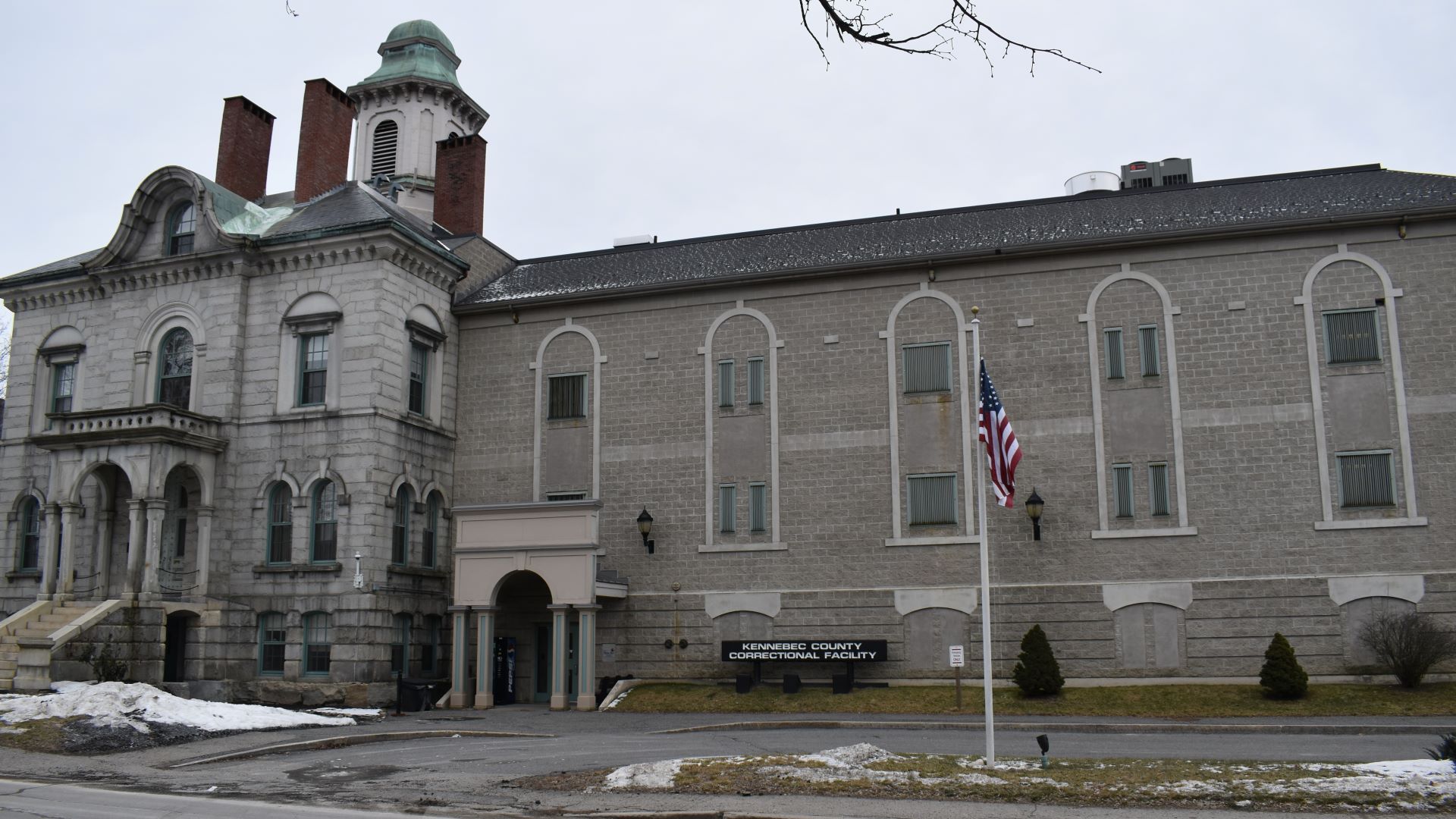A bill that would penalize prosecutors who listen to recordings of attorney-client conversations made by Maine county jail phone systems was instead turned into a study group on Thursday.
The vote came after conversations with the state Department of Corrections, district attorneys and criminal defense lawyers made it clear that consensus on a bill couldn’t be reached this year, said Rep. Thom Harnett (D-Gardiner), who sponsored the legislation.
There was broad agreement that recording inmate-attorney calls is “illegal,” he said.

“Privilege is a fundamental constitutional right and it is absolutely the responsibility of state government to ensure that those rights are protected and carried out. Those rights exist today. They exist whether this bill is enacted or not,” said Harnett, who acknowledged it was not the outcome he wanted.
Maine county jails routinely recorded calls to lawyers and shared some with police and prosecutors ahead of trial, a Maine Monitor investigation this year found. Nearly 200 defendants and 46 law firms were recorded by the Aroostook, Androscoggin, Franklin and Kennebec county jails between June 2019 and May 2020, data show.
It is already against state law for jailers to interfere with attorney-client privilege. The bill would have strengthened enforcement of the law and allowed the state to collect a civil fine of $10,000 each time a person “knowingly eavesdrops on, records or transmits” an attorney call. The bill would also have also created a new felony charge for listening to attorney calls, stopped prosecutors from continuing to work on a case after they heard privileged calls, and would have required the jails to review call logs to see if the facilities recorded attorneys.
Republicans, Democrats and an Independent each said they were disappointed that an earlier version of the bill couldn’t be passed this year, but the Legislature’s Judiciary Committee voted unanimously that the study group was a worthwhile alternative.
The group will be nimble enough to work on an “important constitutional issue” that the Legislature did not have time to finish its work on this year, said Rep. Laurel Libby (R-Auburn).
The decision would also not prevent the state from taking immediate remedial action, said Rep. Stephen Moriarty (D-Cumberland).
“If this resolution passes, the Department of Corrections internally ought to immediately implement some instructions or rule changes of its own to prohibit the recording of these conversations that are clearly constitutionally privileged. So I hope no time is wasted in that effort,” Moriarty said.
The Department of Corrections supports the formation of a study group, said Anna Black a spokeswoman for the department.
The group dubbed the “Committee to Ensure Constitutionally Adequate Contact with Counsel” will be tasked with reviewing policies for attorney-client contact in Maine jails and prisons and recommending possible changes to improve communication or impose penalties used in other states. A report and proposed legislation would be due by Nov. 2.
Its 16 members include the director of public defense, two prosecutors — one from a statewide association and another from the attorney general’s office — two civil rights attorneys, a representative for criminal defense lawyers, a prisoner’s right advocate, a domestic violence survivors advocate, a representative of the Department of Corrections, the commissioner of public safety, a sheriff and five state legislators.
The emergency resolve needs to be approved by the full House and Senate before the group can begin its work.
Justin Andrus, who proposed the bill, was disappointed by the outcome. Andrus is the executive director of the Maine Commission on Indigent Legal Services, or MCILS, which is responsible for providing attorneys to adult and juvenile defendants who cannot afford to hire their own lawyer. Many of the defendants were recorded by the jails speaking to their court-appointed attorneys.
“The study group is a way to make progress but is not a substitute for immediate action,” Andrus said.
‘Interfering with the right to counsel’
The ACLU of Maine also is concerned that defendants’ constitutional rights to privately consult counsel are being violated in Maine and that multiple state agencies and private entities could be liable, said Chief Counsel Zach Heiden.

“Counsel who are not able to communicate confidentially are not counsel at all,” Heiden wrote in an emailed statement to The Maine Monitor. “Legal liability for interfering with the right to counsel goes beyond MCILS — jails, prisons, and the phone contractors are all potentially liable for facilitating or permitting interference with the constitutional right to counsel of people accused of crimes.”
Maine is the latest in a growing list of states to discover they improperly recorded jailed defendants having private conversations with attorneys.
In Maine, 14 of the 15 jails contract with Securus Technologies to monitor inmate phone calls.
The Texas-based company has paid to settle lawsuits in California, Texas and Kansas for recording attorney-client conversations. Securus Technologies and a private prison agreed to a $3.7 million settlement in 2020 for recording attorney calls and meetings and sharing those conversations with a federal prosecutor, according to court records. In each instance, Securus denied intentionally recording attorney calls and challenged whether the calls were private.
Maine lawyers and their jailed clients also filed a federal class action against Securus Technologies for allegedly wiretapping their calls at Maine jails in August 2020. The complaint was dismissed in November 2021 by Chief U.S. District Judge Jon D. Levy, who ruled the attorneys had not proven the company singled out their calls to record.
Responsibility for the county jails falls on Maine’s elected sheriffs. The Maine Sheriffs Association unanimously opposed an earlier draft of the bill.
Jail employees monitor phone calls to protect domestic violence victims from intimidation and threats and to also prevent drugs from being smuggled into the facilities, the sheriffs association said in written testimony.
The group’s testimony also criticized The Maine Monitor’s reporting by calling it “misleading,” without providing evidence in support of its claims.
Using public records The Maine Monitor identified nearly 1,000 attorney calls that were recorded by four Maine county jails in one year. This is likely an undercount of all the attorney recordings made statewide as multiple counties denied repeated requests — filed under the state Freedom of Access Act — by The Maine Monitor for data.
Police and prosecutors were sent recordings of attorney-client calls and heard parts of those calls, according to dozens of emails, court documents and investigative reports reviewed by The Maine Monitor.
The Sixth Amendment of the U.S. Constitution protects defendants’ rights to privately communicate with their lawyers, even when they are incarcerated. In Maine, there have been documented cases of the constitution not being followed in that regard, said Meagan Sway, policy director of the ACLU of Maine.
“In the meantime, if there is this delay, it would be nice if the folks that have been shown to be recording things would make assurances that they’re not going to do this,” Sway said.








